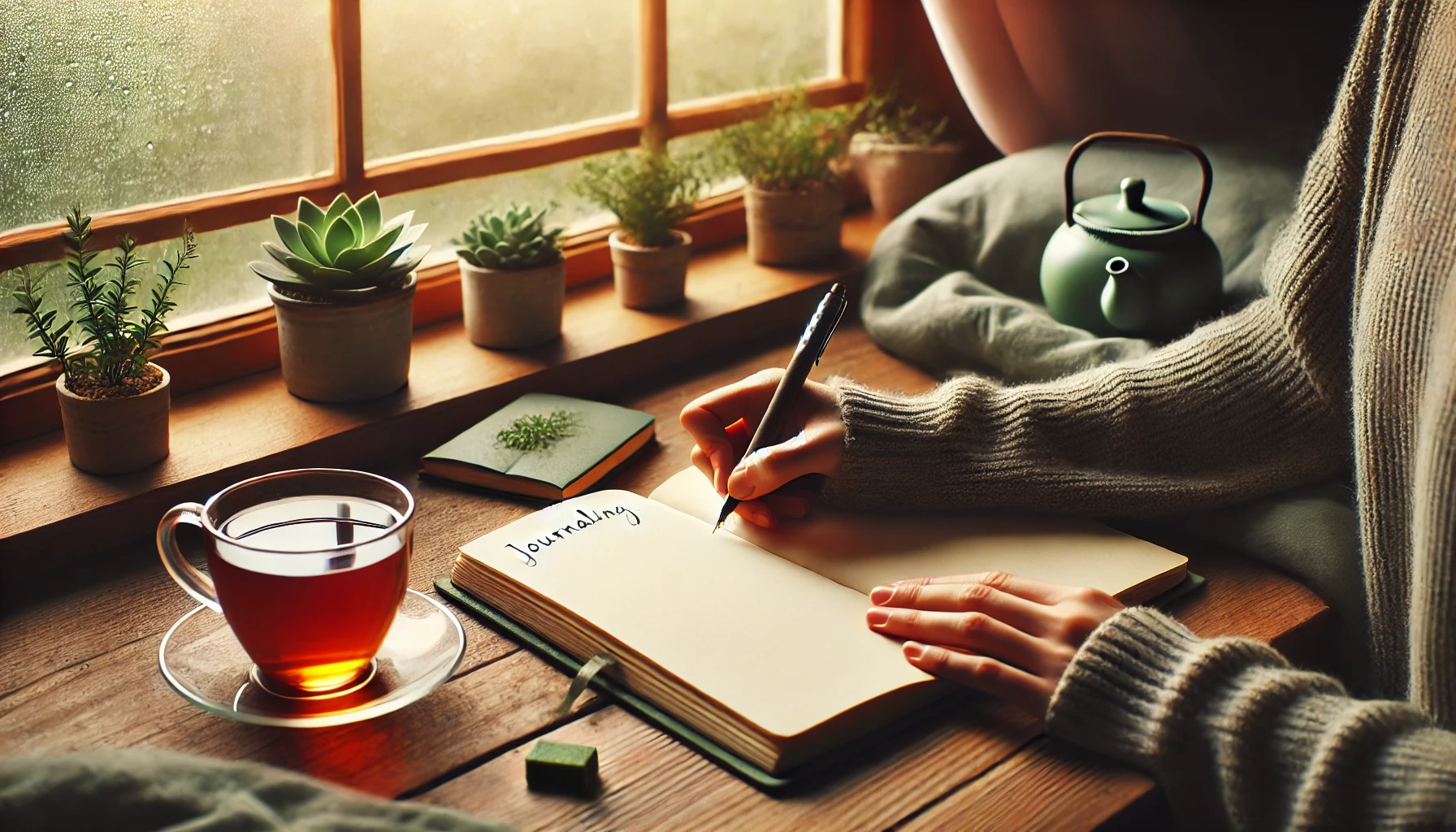Learn how daily journaling improves mental clarity, reduces stress, and supports emotional balance with simple, mindful writing habits.
In a world full of distractions and emotional pressure, journaling has become one of the most effective tools for mental clarity and stress relief. It’s simple, accessible, and requires nothing more than a pen, a notebook, and a few minutes of your time.
Whether you’re dealing with anxiety, overwhelm, or just a cluttered mind, journaling can help you process emotions, gain insights, and restore calm.
Let’s explore how journaling works and how you can start using it today to improve your well-being.
1. Why Journaling Helps Reduce Stress ✍️🧠
When you write down your thoughts, you take them out of your mind and onto the page. This helps stop mental spirals and creates a sense of order.
Journaling helps you:
- Express bottled-up emotions
- Identify stress triggers
- Reflect on challenges with perspective
Even a few sentences a day can lead to powerful mental shifts.
2. Start With Just 5 Minutes a Day ⏳📓
You don’t need to write pages and pages. Consistency matters more than length. Start with five minutes in the morning or before bed.
To build the habit:
- Keep your journal visible and within reach
- Choose a peaceful space
- Use the same time daily to create routine
As the habit forms, you may naturally want to write more.
3. Use Journal Prompts to Guide Your Mind 💭📖
Not sure what to write? Prompts give you direction. They help you explore emotions and thoughts you may not realize are there.
Try these prompts:
- What’s been on my mind lately?
- What am I grateful for today?
- What do I need to let go of?
These questions lead to deeper awareness and emotional clarity.
4. Practice Gratitude to Shift Your Mood 🌅🙏
Gratitude journaling is one of the most powerful ways to rewire your brain for positivity. It encourages you to focus on what’s going well.
How to do it:
- List three things you’re grateful for each day
- Be specific: include names, experiences, or moments
- Reflect on why they matter to you
This habit improves mood and builds emotional resilience over time.
5. Use Freewriting to Release Mental Clutter 🌀📝
Freewriting involves writing nonstop for a set time without worrying about grammar, structure, or logic. The goal is to release thoughts as they come.
Try this method:
- Set a timer for 10 minutes
- Write whatever comes to mind—don’t stop
- Let go of perfection and just flow
It’s one of the fastest ways to reduce internal noise and tension.
6. Combine Journaling With Breathwork or Meditation 🧘♂️🖋️
Enhance the benefits of journaling by pairing it with mindfulness techniques. This combination centers your mind and body.
Simple practice:
- Meditate for 5 minutes before writing
- Focus on your breath
- Let journaling be a continuation of your stillness
This creates a peaceful ritual that reduces stress and improves self-awareness.
7. Create a Safe Space for Honest Expression 🔒🧡
Your journal is a private space. Use it to be honest with yourself. There’s no need to edit your feelings or thoughts.
To make it a judgment-free zone:
- Write freely without overthinking
- Avoid worrying about spelling or neatness
- Focus on how writing makes you feel
Over time, you’ll feel more emotionally connected and mentally clear.
8. Track Your Moods and Patterns Over Time 📊🔁
Your journal can also serve as a personal insight tool. Reviewing past entries can help you identify emotional triggers, habits, and progress.
What to look for:
- Repeating stress sources
- Emotional patterns or reactions
- Areas of growth or healing
This awareness leads to better decision-making and self-care strategies.
9. Use Visual Elements to Enhance Expression 🎨🖍️
If words don’t come easily, try sketching or adding symbols and colors. Creative journaling taps into different areas of your brain and helps with release.
Ideas include:
- Drawing your emotions
- Adding stickers or washi tape
- Using colored pens for different moods
Make your journal a creative reflection of your inner world.
10. Let Journaling Become a Daily Act of Self-Care 🌼🕊️
Journaling isn’t just a mental tool—it’s a form of emotional hygiene. Like brushing your teeth, it clears away mental residue and sets the tone for your day.
Keep it meaningful by:
- Treating it as “you time”
- Writing with intention, not pressure
- Ending each entry with a hopeful note
Over time, you’ll find your journal becomes a trusted friend.
Journaling isn’t just about writing—it’s about connecting with yourself. When done consistently, it offers peace, clarity, and empowerment. So grab a pen, open your notebook, and give yourself the space to breathe through words.
